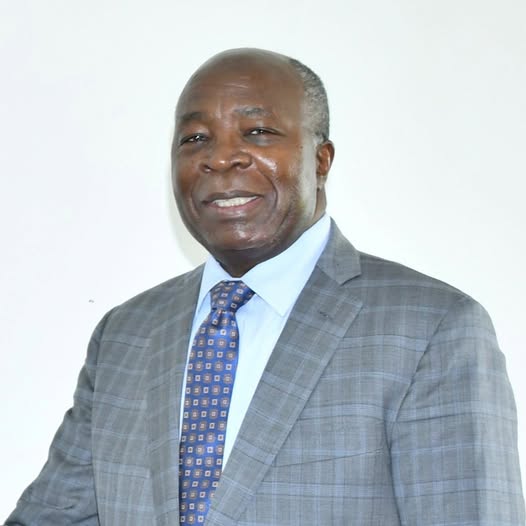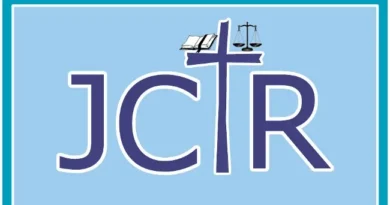Minister Musokotwane Responds to Dr Mbita Chitala’s GDP and Energy Sector Analysis
Minister of Finance and National Planning, Dr Situmbeko Musokotwane, has issued a comprehensive response to an online article by former ZESCO Chairperson, Dr Mbita Chitala. In his reaction, Dr Musokotwane describes Dr Chitala’s assessment of Zambia’s GDP growth and electricity challenges as methodologically flawed, factually inaccurate, and misleading to the public.
He argues that the analysis contains major conceptual errors, selective data use, and a lack of coherent economic reasoning.
Dr Musokotwane explains that Dr Chitala’s GDP calculations are fundamentally incorrect because they are derived from nominal GDP rather than real GDP. He notes that nominal GDP includes the effects of inflation and therefore cannot be used to calculate real economic growth. According to him, the correct approach is to use real GDP measured at constant prices, which adjusts for changes in the price level.
This principle, he emphasises, is set out in international standards such as the United Nations System of National Accounts and the IMF’s statistical guidelines. When this correct method is applied, official figures show that Zambia recorded growth rates of 5.2 percent in 2022, 5.4 percent in 2023, and 4.0 percent in 2024. These figures are validated by ZAMSTATS, the IMF, the World Bank, and the African Development Bank. He stresses that no credible international source supports Dr Chitala’s claim of 1 percent average growth, and therefore his conclusions are unfounded.
Responding to the allegation that GDP figures are “fake” because mining export revenues are not repatriated, the Minister states that this reflects a misunderstanding of national accounts. GDP measures production within Zambia’s borders, not the location of banked proceeds. He explains that whether mining companies keep export earnings in Lusaka, Johannesburg, or London has no bearing on the calculation of GDP. As long as the copper is produced in Zambia, its value added contributes to the country’s GDP. This, he says, is a basic and universally accepted economic principle.
On the issue of population growth, Dr Musokotwane rejects the claim that Zambia is regressing. He clarifies that the country’s real GDP per capita has been rising since 2021, which means that economic growth has been outpacing population growth. He argues that because Dr Chitala’s GDP calculations are incorrect, his conclusions about per-capita economic decline are equally flawed.
Turning to the electricity sector, the Minister says that Dr Chitala’s claims contain both factual and analytical errors. He disputes the assertion that the PF administration left behind 1,000 MW of installed capacity, noting that major projects such as Kafue Gorge Lower were initiated under MMD, continued under PF, and completed under UPND.
Additional installations—including Itezhi-Tezhi, Scaling Solar, and several private and mini-hydro projects—were developed across multiple administrations. He argues that presenting the development of energy infrastructure as the achievement of a single government is misleading and historically inaccurate.
With regard to current load shedding, Dr Musokotwane states that all professional evidence points to the severe 2023/2024 drought, which drastically reduced water levels at Kariba, Kafue Gorge, and Itezhi-Tezhi. He notes that climate change-induced droughts are not unique to the UPND administration, recalling that Zambia experienced intensive load shedding in 2019 when Dr Chitala served as ZESCO Chairperson.
He remarks that attributing the current power shortage to exports, political interference, or the dismissal of certain experts ignores hydrological realities and contradicts assessments issued by ZESCO, the Ministry of Energy, the Energy Regulation Board, the Southern African Power Pool, and the World Bank.
Dr Musokotwane also challenges the reliability of the electricity export data used by Dr Chitala, saying that mixing information from ERB reports, Lusaka Times articles, WITS datasets, and data-scraping websites results in incomparable figures and inaccurate conclusions.
He stresses that many of these sources measure different variables, including trade value, energy dispatched, and mirror statistics, making direct comparisons inappropriate. He also dismisses the suggestion that halting power exports would end load shedding, arguing that exports are governed by contracts, occur largely during off-peak hours, and do not materially affect lake water levels.
The Minister adds that exports provide Zambia with essential foreign exchange and help stabilise the currency. Furthermore, he clarifies that Zambia currently has no interconnector with Tanzania, making claims that the country exports power there both factually incorrect and technically impossible.
Commenting on Dr Chitala’s argument that Zambia should rely exclusively on hydro, thermal, and nuclear power while sidelining solar and wind, the Minister says this view is outdated and inconsistent with global best practice.
He explains that hydro power is vulnerable to drought, thermal power is expensive and environmentally damaging, and nuclear power requires between 5 and 10 billion dollars and at least a decade to develop. In contrast, modern energy systems depend on a diverse mix of hydro, solar, wind, battery storage, regional interconnectors, and flexible thermal backup. Dismissing renewable energy sources, he says, is economically unsound and ignores global energy trends.
Dr Musokotwane concludes that Dr Chitala’s analysis contains serious conceptual errors and cannot be relied upon for policy decisions. He argues that the analysis is driven by ideological preferences rather than empirical evidence and fails to meet the standards of professional economic interpretation.
He stresses the importance of using internationally recognised methodologies and verified data when analysing GDP, national accounts, the electricity sector, or macro-fiscal trends.
In his final remarks, the Minister calls for greater academic rigour and professional responsibility amongst public commentators, especially on technical issues that have national implications.
He urges analysts to consult experts in economics, statistics, engineering, hydrology, and climate science when presenting complex assessments to the public. He states that seeking such guidance is a sign of scholarly maturity and contributes positively to informed national discourse.
Minister Musokotwane adds that future commentaries, including those by senior citizens like Dr Chitala, would benefit from closer collaboration with Zambia’s professional community and adherence to recognised analytical frameworks, which would strengthen credibility and support sound policymaking.



